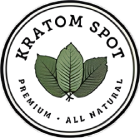
As a writer, wellness enthusiast, and kratom researcher alike, I have a confession to make: writing about kratom isn’t fun. I believe in the potential kratom benefits that you’ve heard from friends or read about in anecdotal user reports; I believe the plant has changed the lives of thousands of Americans for the better. However, the U.S. government doesn’t agree with me.Writing about kratom isn’t fun because the Food and Drug Administration (FDA) has restricted kratom writers like myself to only the basics. In fact, any kratom websites publishing “unsubstantiated claims” are sent FDA warning letters, essentially a cease-and-desist for writers like me.
It doesn’t matter if websites publish content about kratom uses, kratom benefits, or even just kratom descriptions involving a particular strain. If any of this content contains information deemed “unsubstantiated,” the company is sent FDA warning letters, and the page in question is altered or taken down.
Imagine you’re writing an essay in school and the teacher is watching your every word. Except this time, if you make a typo, you get sued. That’s what being a kratom writer feels like.
It’s important to educate yourself on the legality of kratom advertising. Knowing what’s allowed and what’s illegal can help you to better understand why the language used on kratom sites often seems vague, awkward, or even avoidant of key issues.
It’s not that kratom writers like myself don’t want to tell you 100 percent of the information available to us– it’s that we’re not allowed.
The FDA & Kratom: An Unhappy Mingling
The FDA first saw kratom reach U.S. soil in 2012, claiming illegal importation of “unapproved drugs” into the United States. In 2014, another kratom shipment was seized as it was deemed illegal transportation of dietary supplements containing kratom compounds.
Kratom and the FDA did not start off on the right foot. In fact, the U.S. agency even attempted to implement an FDA ban on all kratom (regardless of use) in 2016. However, this ban was postponed after an overflow of U.S. citizens contacted the federal agency, citing that the compound was helping them navigate their everyday lives.
Kratom enthusiasts saw overcoming the FDA ban as a win, but the FDA didn’t begin to accept kratom. In fact, the U.S. agency began sending out more and more FDA warning letters to kratom vendors nationwide, citing unlawful marketing practices. In 2020, they’re even opposing the Kratom Consumer Protection Act (KCPA) championed by the American Kratom Association (AKA), urging state governments not to pass this bill.
Why Would a Vendor Receive FDA Warning Letters?
It’s all in the language. Some kratom descriptions make outrageous claims, while others simply state what some believe to be common knowledge. However, the more outrageous a company’s claims, the more likely they’ll receive FDA warning letters.
Let’s look at some examples of why companies have received FDA warning letters. These are reconstructions of quotes published directly on the FDA’s website, taken from kratom sites that received warning letters in either 2018 or 2019. However, the advertising restrictions are so severe that we can’t even quote these examples directly for fear of receiving FDA warning letters ourselves. Absurd, we know. Virtually any mention of kratom benefits or kratom uses could get a kratom site flagged for infringement, so instead we’ll restructure these examples to be as neutral as possible:
On Kratom Benefits & Kratom Uses
Sites were flagged for saying:
- That many people used kratom for cessation of other compounds.
- That some people with certain preexisting conditions may choose to use kratom daily.
- That kratom can be used for recreational or medical purposes.
- That kratom is a natural alternative to specific medications.
- That kratom is more popular now than some specific medications.
- That kratom has a wide variety of benefits, mentioning specifics.
On Kratom Descriptions
Sites were flagged for saying:
- That kratom acts upon brain receptors.
- That kratom was similar to another known medicinal compound.
- That kratom alkaloids possess unique properties.
- That kratom can fit a variety of lifestyles and purposes.
So What Isn’t Allowed in Kratom Marketing?
Examining trends in the aforementioned (deconstructed) quotes, we can see that the FDA takes particular opposition to kratom companies making medical claims, especially claims surrounding potential kratom benefits. This makes sense: companies selling under-studied compounds shouldn’t be allowed to publish medical claims about that product.
However, when it comes to kratom, the FDA states that more research is needed. Yet the U.S. agency refused to schedule kratom according to the Controlled Substances Act (CSA) of 1970, which would effectively open kratom up to funding for clinical trials. The FDA has created a Catch-22 with kratom manufacturers: we can’t make medical claims about kratom until medical claims are proven true, but medical claims cannot be proven true without FDA-approved clinical trials.
And kratom marketing is more restricted than just that. What else can I not say as a kratom writer?
- I cannot tell you how to consume your kratom.
- I cannot tell you how much kratom you should consume, even including recommendations for first-time kratom users (I personally think this is dangerous as an educated kratom site should be allowed to tell people what amount is safe to consume).
- I cannot make medical claims.
- I cannot make therapeutic claims.
- I cannot make homeopathic claims.
With all this in mind, what can I say about kratom uses and kratom benefits as a writer in this industry? Well, not a lot. For one, I can talk about the origins of different strains and how kratom strains differ from one another. Furthermore, I can quote or talk about user experiences, known as “anecdotal” evidence– however, I cannot quote or talk about anecdotal evidence if it touches upon the effects, benefits, or dosage of kratom.
However, in the scientific community, anecdotal evidence does not equal scientific evidence, meaning the FDA does not consider anecdotal evidence when determining the medical, therapeutic, and homeopathic efficacy of a particular compound.
Understanding What’s Allowed in the Kratom Industry
It’s important for consumers to understand all sides of the kratom industry, including advertising and marketing. For one, it’s vital to avoid kratom companies that make unsubstantiated medical claims. This might be the one thing the FDA and I can agree on: unproven medical claims may negatively influence consumers to avoid proven medical treatment options for serious medical conditions.
On the other hand, knowing what’s allowed in kratom advertising allows you to see just how limited kratom writers really are. I urge each and every kratom user to conduct independent research, scour internet forums with user-generated posts, and talk to other kratom users. These things can shape your understanding of the industry, even as kratom writers like myself cannot share 100 percent of the information available to us.
Furthermore, knowing how the FDA regulates kratom (while keeping it unregulated in the eyes of the Controlled Substances Act), allows you to see if another FDA ban is on the way, or if we’ll soon see some FDA-approved kratom uses in the near future.

